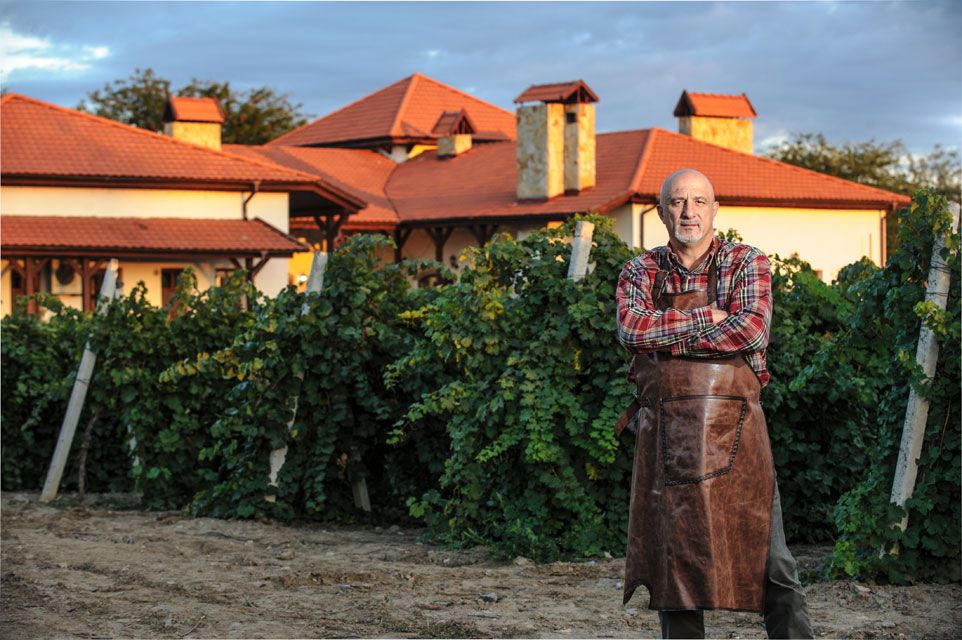Odessa Black 2015 and Sukholymanske 2015 are two wines from Kolonist that particular excite and stand shoulder-to-shoulder with Dauga’s wines from Bordeaux.
Back when I worked for the European Bank for Reconstruction and Development (EBRD) and was a regular visitor to Kyiv, Ukrainian wine was something of a conundrum: it was hard to find but when you succeeded, you really wished you hadn’t.
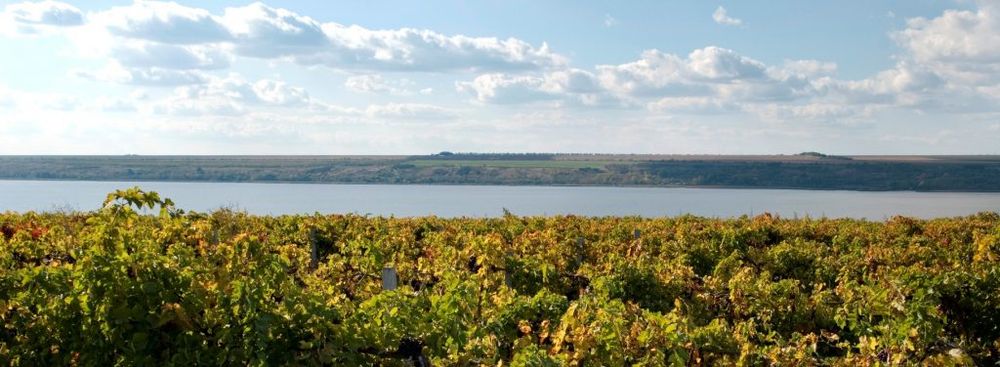
The stunning setting of the Kolonist vines in Ukraine – on the same latitude as Bordeaux
Today, although Ukraine still only boasts 17 wine producers, most of them large quasi-industrial concerns focused on the less discerning end of the market, things are on the up.
Mindful of how relations have deteriorated with Ukriane’s big neighbour Russia and supported by loans from such organisations as the EBRD and European Investment Bank (EIB), producers like Chateau Grona are looking to export to more quality-conscious markets like Holland.

Olivier Dauga in London for the tasting, March 2017
The most important change, though, has been the arrival over the last ten years of flying winemakers who see the long-term potential in this large, productive but troubled country. Among them is Olivier Dauga, nicknamed Le Faiseur de Vin.
Dauga is best known for his work in Domaines Rollan de By in the Medoc – including Chateau Haut Condissas AOC Medoc. However, his work with Kolonist, a new winery in Danubian Bessarabia, on Ukraine’s border with Moldova and Romania, is also getting international recognition.
Built from scratch in 2005 by powerful local businessman Ivan Plachkov, which he now runs with his wife Alla, Kolonist had natural advantages: it is on the same latitude as Bordeaux and Piedmont and is close by the Danube, the Black Sea and Ukraine’s biggest lake, Yalpug. It is even located in the region settled by Bulgarian colonists back in the 18th century, from who Plachkov traces his origins (which is why he chose the name, Kolonist).
However it also had distinct disadvantages, some a consequence of President Gorbachev’s ill-fated anti-alcohol campaign which led to many vineyards being uprooted or deliberately neglected.
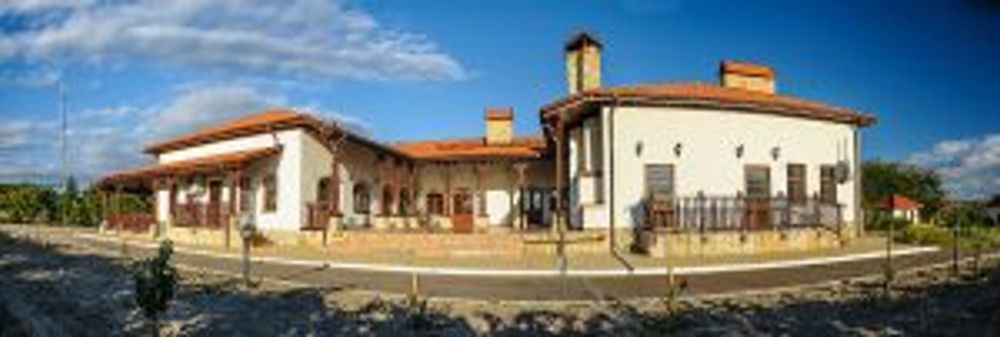
The Kolonist winery
“Native grapes like Black Odessa used to grow here but like everything else at the site were completely devastated when we bought the land; we had to re-plant everything from scratch,” says Alla.
A more unlikely problem was Ukraine’s famed incredibly fertile black soil, chernozem, for which it earned the moniker “breadbasket of the Soviet Union.” You might have thought that having this soil would be a good thing; Dauga says it was quite the opposite.
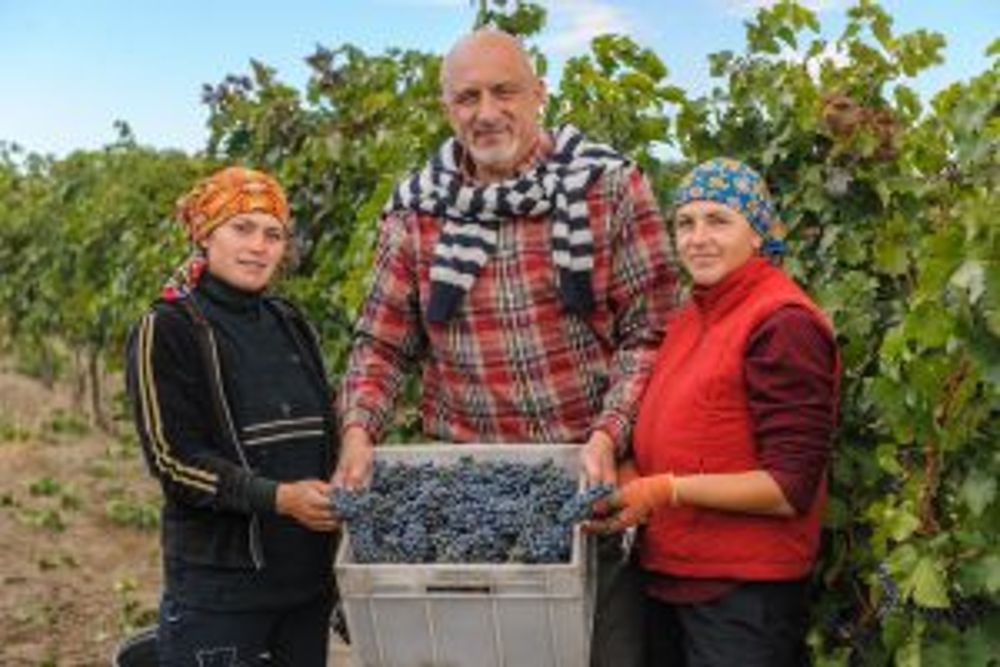
Ivan Plachkov with Ukrainian vine workers
“The old Socialist mentality was to produce vast quantities of grapes for which this soil was ideal. I had to tell them we aren’t just growing fruit here, we are making wine. The trick was to dig down, well down, to get below the chernozem and into the clay soil that lies beneath.”
Tasting the Kolonist wines with Olivier Dauga
Eleven years on, the results of all this effort were on show at a tasting hosted by Dauga and the Plachkov last week in London’s new Design Museum in Holland Park.

Kolonist wines included Bisser, in its first vintage, a fresh and drinkable 100% sparkling chardonnay and the winery’s main European style wine, Cabernet-Merlot, a 2015, a 2012 and 2011. All were 50/50 Cabernet Sauvignon and Merlot and all clearly show Olivier Dauga’s guiding hand, especially the 2012 which is quite fruit-forward (cassis and blackberry) but supported by a subtle use of French oak and smooth well-integrated tannins.
The Kolonist Cabernet-Merlots were tasted alongside some of the Merlot-focused Medoc wineries that have felt Dauga’s guiding hand, including Chateau Greysac 2012 and three vintages of Chateau Haut Condissas (2012, 2010 – unsurprisingly perhaps, the best of the three – and a slightly fading 1999) and the truth is, they stood up very well indeed. These are ambitious Franco-Ukrainian wines. Which is a good thing.
For me though the star attraction were the Ukrainian wines that Dauga and Plachkov have produced.
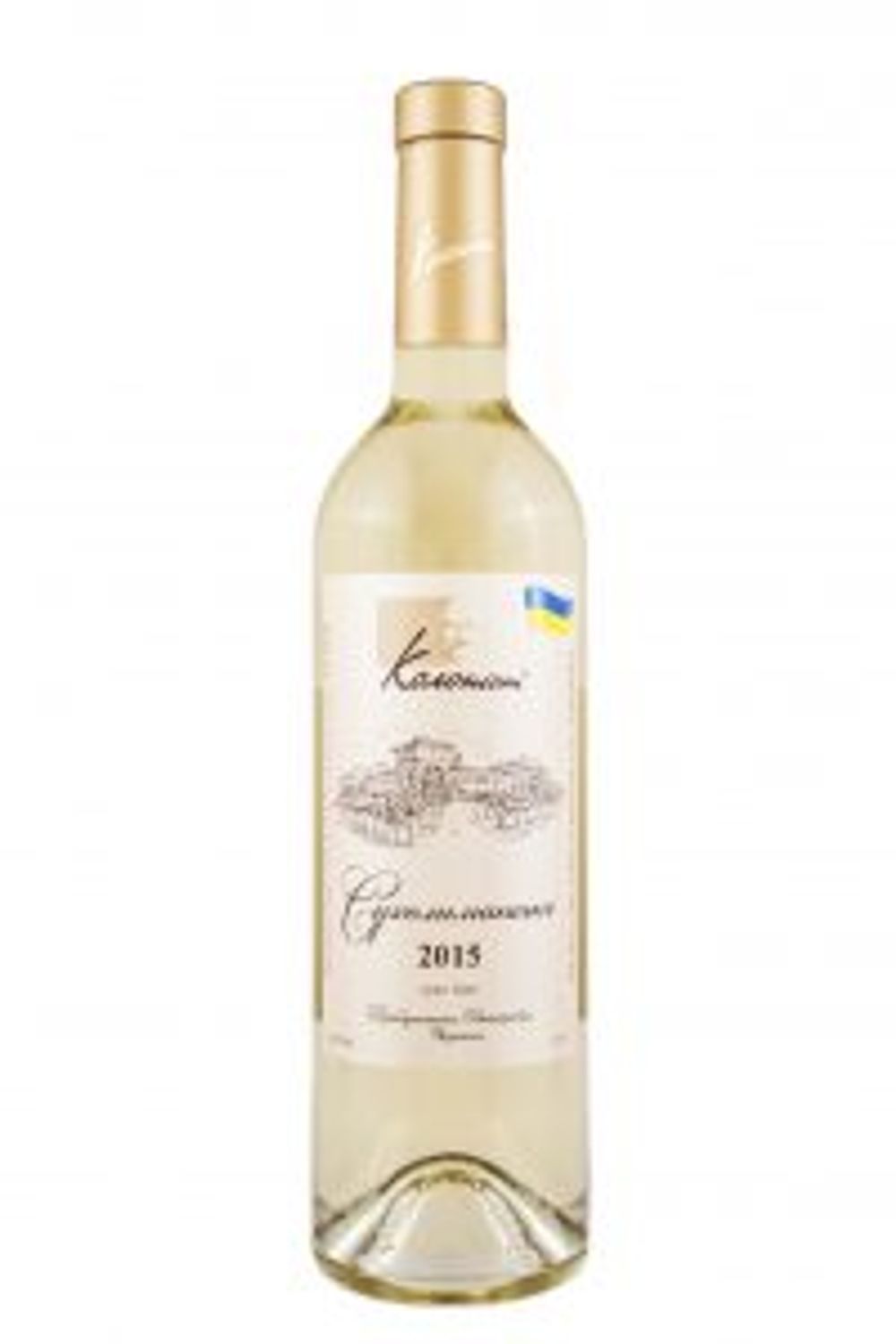
Ukraine is no Italy or Portugal when it comes to native grapes, but Kolonist is doing a good job with the ones it does have.
The white Sukholymanske 2015 was a quite neutral but well-balanced wine, which Ivan Plachkov assured me is “popular with courting couples”.
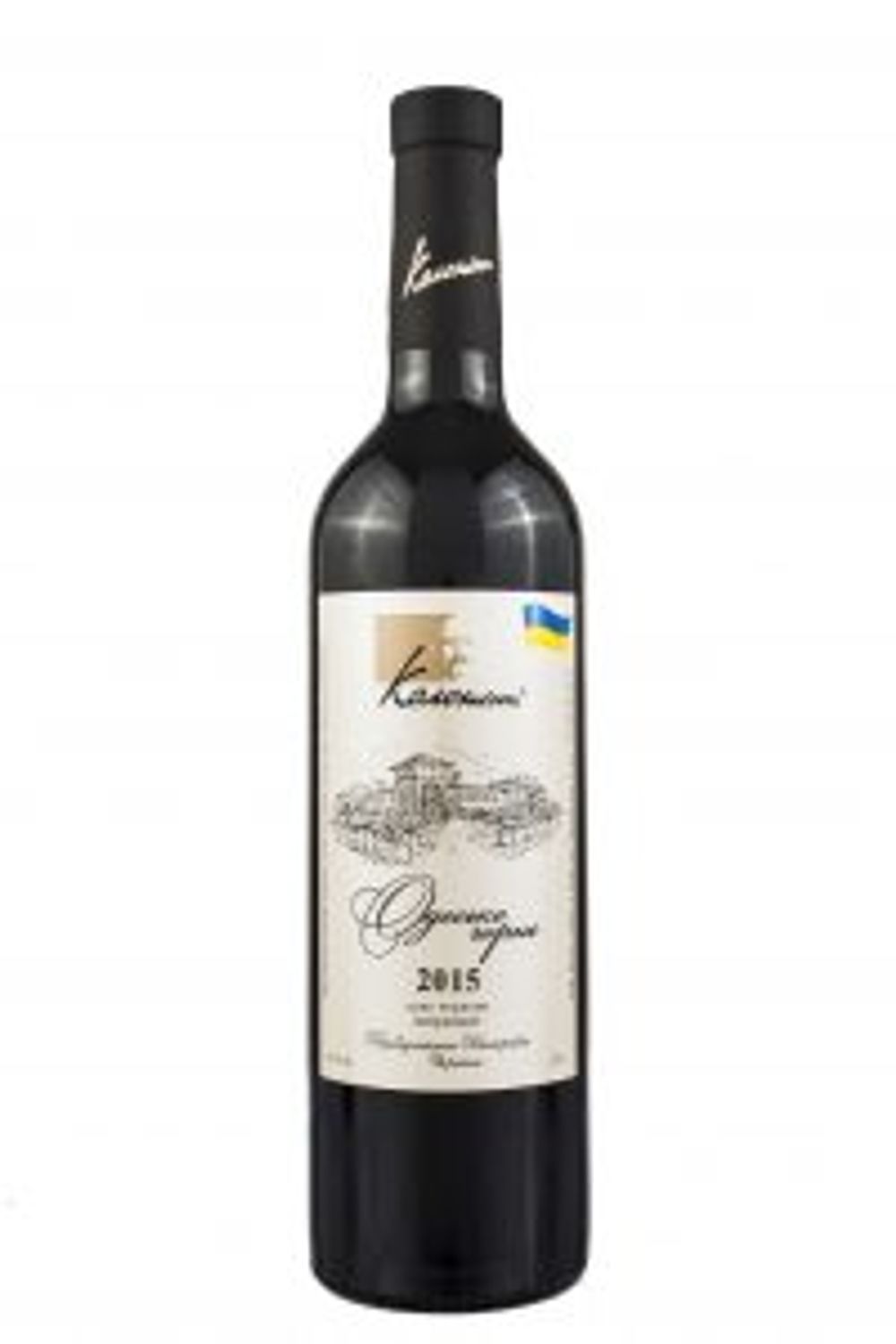
More dramatic by far was the fascinating red berry and prune-charged Odessa Black 2015, made from the eponymous grape, a mid-twentieth century crossing. This can produce such powerful wines that Dauga says making the wine “behave” properly is akin to taming a mustang; “you really have to hold this wine back to get a good and balanced wine, but when you get it right – wow. This uncorks the Ukrainian nationality,” he says.
Indeed. Aged in French oak for six months, the result is an intense but well-balanced fruit bomb. The alcohol checks in at 13.5%; it feels like it could have been much, much more.
The last wine, a cold-fermented semi-dry Riesling is just 11% and apparently so popular in France that Dauga says they cannot get enough of it there. I can see why; light, fresh and soft-edged, this is the ultimate more-ish wine.
What does the future hold for Kolonist? With the direction of the winery now firmly established, it is looking to export more to the UK – at present the amounts that come here are tiny. However given that it only produces 180,000-200,000 bottles of everything – a lot of which are more basic wines that would have limited appeal outside the home market – any expansion will be relative. And Alla Plachkov says that whilst the long term plan is to step up annual production, this will be gradual.
“We’ve come a long way in the last 11 years and the one thing we don’t want to do is sacrifice quality for quantity. We are proud of what we can show and want to keep it that way.”
Which is a lot more than any Ukrainian producer could have said back in my EBRD days.
